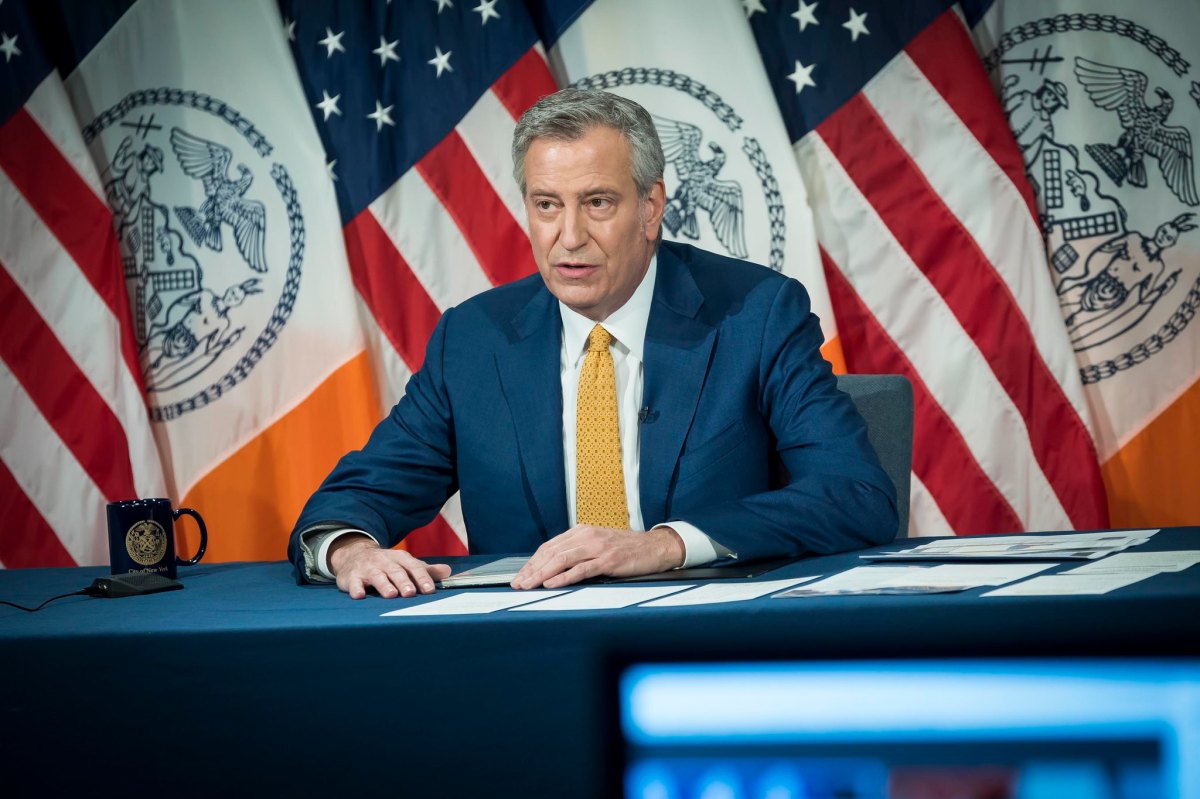New York City will expand internet access to low-income residents with funds taken from the New York Police Department’s capital budget, Mayor Bill de Blasio announced on Tuesday.
In the “spirit of redistribution” De Blasio told reporters that $87 million of the $157 million project will come from the NYPD’s capital budget which plans to provide broadband to 600,000 New Yorkers over the next 18 months in neighborhoods like Brooklyn’s East New York and Brownsville. At least a third of those set to receive internet access live in NYCHA, the mayor added. Select New Yorkers receiving broadband over the next year and a half will only have to pay $15 a month for the service.
De Blasio’s Chief Technology Officer John Paul Farmer and Economic Development Corporation pledged to contract minority and women-owned businesses to train young people from these communities as certified broadband installers and technicians, according to Deputy Mayor Phil Thompson. Thompson also said that the city would use some unnamed nonprofits in the initiative.
Nearly 1 million people across the five boroughs lack broadband internet access, according to a report from Comptroller Scott Stringer’s office released last year. Seniors make up a large portion of this number, according to the report, which states that 42% of New Yorkers 65 and above lacked broadband internet access compared to 23% of 18 to 24 year olds.
Low-income New Yorkers were far less likely to have access to broadband. The report found that 44 % of New Yorkers living in poverty had no access to internet at home while only 22% of people living above the city’s poverty line did not have broadband access. There were also disparities in internet access between racial groups. About 30 % of Black and Latino New Yorkers lacked broadband access compared to 20% of white and 22% of Asian New Yorkers.
The initiative is being led by the city’s task force on racial inclusion and equity headed by Thompson and First Lady Chirlane McCray.
“When our task force on racial inclusion and equity surveyed community organizations in the neighborhoods hardest hit by COVID the demand for broadband access was one of the most frequent responses we got,” said Thompson.
“The internet is more a necessity these days than it is a convenience,” said Thompson. ” Not having access to the internet in 2020 is like not having access to public education was in 1950.”
The mayor said that he would lobby for a state law that would force internet companies like Verizon, Optimum, RCN, and Spectrum to pay for using city infrastructure.
“They are profiting but they are not paying their fair share,” de Blasio told reporters. “We need them to pay. We would use that money to provide even more broadband access for New Yorkers who don’t have it.”


































